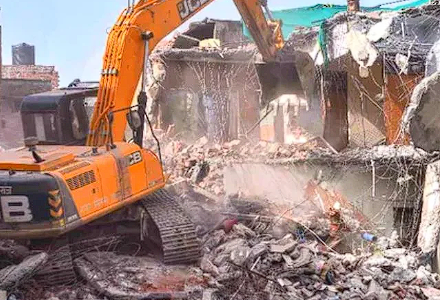Supreme Court Ruling on Demolition in Prayagraj
Recently, the Supreme Court of India made ruling regarding the demolition of residential properties in Prayagraj, Uttar Pradesh. The court condemned the actions of local authorities as “inhuman and illegal.” It ordered the Prayagraj Development Authority to compensate affected residents, denoting the need for adherence to due process in such situations. This case has drawn attention to the balance between urban development and individual rights.
Background of the Case
The controversy began with the demolition of structures on a Nazul plot in Prayagraj. These plots are government lands designated for public use. The lease for the land was granted in 1906 and expired in 1996. Despite applications for freehold conversion, the local authorities rejected these requests in 2015 and 2019. The residents claimed they were not given proper notice before the demolitions occurred.
Supreme Court’s Critique
The Supreme Court’s bench, led by Justices A S Oka and Ujjal Bhuyan, expressed shock at the manner of the demolitions. They noted that residents were not provided a reasonable opportunity to contest the actions. The court emphasised that the right to shelter is integral to Article 21 of the Constitution of India. The court found that the authorities failed to make genuine efforts to serve demolition notices personally.
Legal Principles Involved
The ruling highlighted the importance of legal principles surrounding property rights and due process. Section 43 of the Uttar Pradesh Urban Planning and Development Act mandates that notices must be served in person, unless all efforts to do so fail. The court brought into light that merely affixing notices on properties is insufficient and can lead to violations of individual rights.
Compensation Orders
In response to the illegal demolition, the Supreme Court ordered the Prayagraj Development Authority to pay Rs 10 lakh to each affected resident. This compensation aims to address the violation of rights and serve as a deterrent against future negligence by authorities. The court’s decision reflects a commitment to uphold constitutional rights amidst urban development pressures.
Future Implications
The Supreme Court’s ruling sets a precedent for future cases involving property rights and demolitions. It reinforces the necessity for local authorities to follow due process and respect individual rights. The decision may influence how urban development is approached in India, particularly regarding the treatment of vulnerable populations.
Month: Current Affairs - April, 2025
Category: Legal & Constitution Current Affairs








